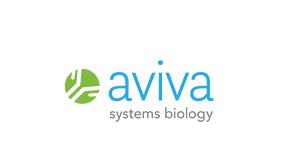CD4 Antibody
CD4 Antibody
Artikelnummer
AVIOASA00630
Verpackungseinheit
2ml
Hersteller
Aviva Systems Biology
Verfügbarkeit:
wird geladen...
Preis wird geladen...
Clone: CA13.1E4.
Description of Target: MOUSE ANTI DOG CD4
.
Immunogen: The immunogen for anti-CD4 antibody: canine Thymocytes.
Key Reference: 1. Moore, P.F. et al. (1992) Monoclonal antibodies specific for canine CD4 and CD8 define functional T-lymphocyte subsets and high-density expression of CD4 by canine neutrophils. Tissue Antigens 40(2): 75-85.
2. Cobbold, S. & Metcalfe, S. (1994) Monoclonal antibodies that define canine homologues of human CD antigens: Summary of the first International Canine Leucocyte Antigen Workshop (CLAW). Tissue Antigens 43(3): 137-154.
3. Veenhof, E.Z. et al. (2010) Characterisation of T cell phenotypes, cytokines and transcription factors in the.
Product Format: Tissue Culture Supernatant - liquid.
Protein Name: T-cell surface glycoprotein CD4.
Protein Size: 463.
Specificity: Mouse anti Dog CD4 antibody (CA13.1E4), a monoclonal antibody specific for canine CD4. CA13.1E4 was clustered at the first Canine Leukocyte Antigen Workshop (Claw) [Cobbold et al.1992 ] and identifies, by immunoprecipitation a 60kDa monomeric protein under both reducing and non-reducing conditions. Canine CD4 is a surface glycoprotein expressed by non CD8 expressing T lymphocytes, with similar developmental and functional characteristics to T helper
cells described in other mammalian species. Mouse anti Dog CD4 also recognizes a population of CD8 positive cells in the canine thymus (Moore et al. 1992).
CD4 expression has also been reported on a population of CD3 positive peripheral blood T
lymphocytes which are double positive for CD4 and CD8 (Bismarck et al. 2012 ). Similar
reports have been made for cynomolgus monkey (Nam et al. 2000), pig (Saalmuller et al. 1987
, Pescowitz et al. 1990) as well as rat, chicken and human (reviewed Zuckermann 1999 ).
Uniquely amongst mammalian species clone CA13.1E4 also recognizes CD4 expressed on
canine neutrophils at a similar density to that expressed on canine T helper cells. The functional
significance of this is not understood and remains enigmatic in view of the roles described for
CD4 in canine and other mammalian species (Moore et al. 1992).
Clone CA13.1E4 also demonstrates immunohistological staining of splenic marginal zone
macrophages (Moore et al. 1992). Other macrophage populations, such as splenic red pulp
macrophages and Langerhans cells do not stain with clone CA13.1E4. Canine CD4 positive T
cells can be further characterized according to their simultaneous expression of CD45RA as
recognized by Rat anti Canine anti CD45RA clone CA4.1D3 in a manner analogous to that seen
with human T cells (Moore et al. 1992).
Clone CA13.1E4 has been used amongst a large panel of anti-canine monoclonal antibodies for
the study of various lymphoploriferative diseases. T lymphocytes in large granular
lymophocyte (LGL) lymphocytosis are negative for CD4 (McDonough and Moore 2000 ). Dogs
with chronic myelogenous leukemia demonstrate CD4 positive staining on neutrophils (Tarrant et
al. 2001). CD4 expression varies considerably between various canine leukemias (Villiers 2002
).
.
Description of Target: MOUSE ANTI DOG CD4
.
Immunogen: The immunogen for anti-CD4 antibody: canine Thymocytes.
Key Reference: 1. Moore, P.F. et al. (1992) Monoclonal antibodies specific for canine CD4 and CD8 define functional T-lymphocyte subsets and high-density expression of CD4 by canine neutrophils. Tissue Antigens 40(2): 75-85.
2. Cobbold, S. & Metcalfe, S. (1994) Monoclonal antibodies that define canine homologues of human CD antigens: Summary of the first International Canine Leucocyte Antigen Workshop (CLAW). Tissue Antigens 43(3): 137-154.
3. Veenhof, E.Z. et al. (2010) Characterisation of T cell phenotypes, cytokines and transcription factors in the.
Product Format: Tissue Culture Supernatant - liquid.
Protein Name: T-cell surface glycoprotein CD4.
Protein Size: 463.
Specificity: Mouse anti Dog CD4 antibody (CA13.1E4), a monoclonal antibody specific for canine CD4. CA13.1E4 was clustered at the first Canine Leukocyte Antigen Workshop (Claw) [Cobbold et al.1992 ] and identifies, by immunoprecipitation a 60kDa monomeric protein under both reducing and non-reducing conditions. Canine CD4 is a surface glycoprotein expressed by non CD8 expressing T lymphocytes, with similar developmental and functional characteristics to T helper
cells described in other mammalian species. Mouse anti Dog CD4 also recognizes a population of CD8 positive cells in the canine thymus (Moore et al. 1992).
CD4 expression has also been reported on a population of CD3 positive peripheral blood T
lymphocytes which are double positive for CD4 and CD8 (Bismarck et al. 2012 ). Similar
reports have been made for cynomolgus monkey (Nam et al. 2000), pig (Saalmuller et al. 1987
, Pescowitz et al. 1990) as well as rat, chicken and human (reviewed Zuckermann 1999 ).
Uniquely amongst mammalian species clone CA13.1E4 also recognizes CD4 expressed on
canine neutrophils at a similar density to that expressed on canine T helper cells. The functional
significance of this is not understood and remains enigmatic in view of the roles described for
CD4 in canine and other mammalian species (Moore et al. 1992).
Clone CA13.1E4 also demonstrates immunohistological staining of splenic marginal zone
macrophages (Moore et al. 1992). Other macrophage populations, such as splenic red pulp
macrophages and Langerhans cells do not stain with clone CA13.1E4. Canine CD4 positive T
cells can be further characterized according to their simultaneous expression of CD45RA as
recognized by Rat anti Canine anti CD45RA clone CA4.1D3 in a manner analogous to that seen
with human T cells (Moore et al. 1992).
Clone CA13.1E4 has been used amongst a large panel of anti-canine monoclonal antibodies for
the study of various lymphoploriferative diseases. T lymphocytes in large granular
lymophocyte (LGL) lymphocytosis are negative for CD4 (McDonough and Moore 2000 ). Dogs
with chronic myelogenous leukemia demonstrate CD4 positive staining on neutrophils (Tarrant et
al. 2001). CD4 expression varies considerably between various canine leukemias (Villiers 2002
).
.
| Artikelnummer | AVIOASA00630 |
|---|---|
| Hersteller | Aviva Systems Biology |
| Hersteller Artikelnummer | OASA00630-2 |
| Verpackungseinheit | 2ml |
| Mengeneinheit | STK |
| Reaktivität | Dog (Canine) |
| Klonalität | Monoclonal |
| Methode | Immunohistochemistry (frozen), Immunoprecipitation, Flow Cytometry |
| Isotyp | IgG1 |
| Human Gene ID | 403931 |
| Wirt | Mouse |
| Produktinformation (PDF) |
|
| MSDS (PDF) |
|

 English
English







